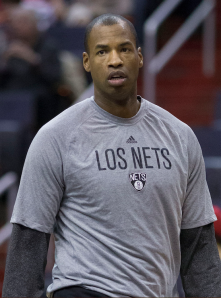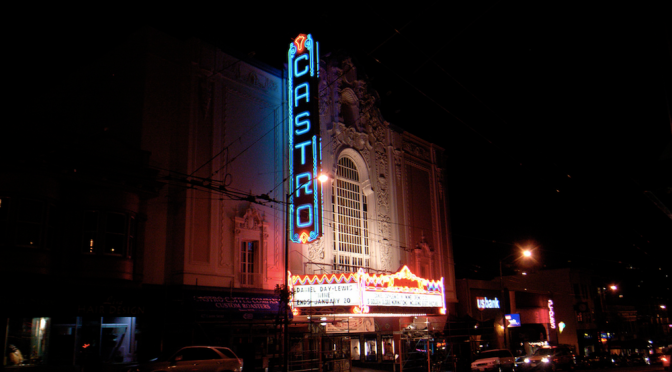Hayden Gehr
Staff Writer
NBA player Jason Collins has spoken in a variety of public settings since he came out as gay in April 2013, but his visit to San Francisco’s Castro District on Monday, Aug. 11 has to hold a special place in his heart.
Collins, the first out athlete in any of the United States’ major professional sports leagues, spoke at the Castro Theatre in an interview with Jose Antonio Vargas, a journalist and immigrant activist who came out as gay in 1999, and as undocumented in 2011.
The Castro’s history as a center for LGBTQ culture and activism, combined with Collins’ connections to the Bay Area (he attended Stanford University), made for a particularly special night and a wildly supportive crowd that included Collins’ grandmother and other family members.
 The event was held by the Commonwealth Club’s Inforum division, and featured Vargas asking Collins about his decision to come out, his efforts to create equality, being a gay man in professional sports, and other topics.
The event was held by the Commonwealth Club’s Inforum division, and featured Vargas asking Collins about his decision to come out, his efforts to create equality, being a gay man in professional sports, and other topics.
Collins, who, even when seated, towered over the crowd in his seven-foot frame, delved into depth about his past and the process of coming to terms with his sexuality. He said that even during his time at Stanford, his only interaction with the Castro District came when he drove through it.
“I wasn’t ready to engage with that community,” he said.
During his earlier years in the NBA, Collins was in denial, and he dated girls in an effort to hide his sexual orientation from his friends, family and teammates. He even got engaged to his girlfriend of eight years, but called off the engagement in 2009.
Collins began telling the people closest to him in late 2011, but his sexuality remained a secret to the public. However, when playing for the Washington Wizards in 2013, Collins grew “tired of lying.” He called his agent, Arne Tellum, and told him that he was gay. Later that year, he publicly came out as gay when he appeared on the cover of Sports Illustrated Magazine.
The response to Collins’ announcement has been overwhelmingly positive both on and off the basketball court. Collins said that homophobic language used to be common in locker rooms and NBA games, but when he returned to the NBA with the Brooklyn Nets, he didn’t hear any. Outside of basketball, Collins is now much more comfortable in his social life. He kissed a man for the first time at age 34, and currently has a boyfriend.
The 13-year NBA veteran has also learned to reach out to his peers. He has talked and gone running with Michael Sam, a professional football player who came out last February. He also sought advice from John Amaechi, a former NBA player who revealed his sexuality in 2007 after retiring from the league. Collins spoke of building a community and network of gay athletes and former athletes, a group that also includes tennis legends Martina Navratilova and Billie Jean King.
Collins has also used his recognition as an opportunity to educate and improve the lives of others. Upon being signed by the Nets, Collins chose to wear number 98 in honor of Matthew Shepard, a gay student who was murdered in 1998, and donated the funds from his jersey sales to the Matthew Shepard Foundation. Each year, Collins offers advice to NBA rookies that concerns health, relationships, and more. At the end of the interview, Collins delivered a powerful message that called for humans to show “love, support, and togetherness,” and to not “exclude or separate.”
The pairing of Collins with Vargas for the interview was not unintentional. Vargas revealed that he was an undocumented immigrant in an essay published in the New York Times Sunday Magazine, and this came after hiding his identity for many years, much as Collins did. The similarities between the two served to increase their chemistry, and when Vargas mentioned a Harvey Milk quote during the interview, it was clear that he, Collins, and many others in the room found the phrase deeply relatable.
“If a bullet should enter my brain, let that bullet shatter every closet door.”

